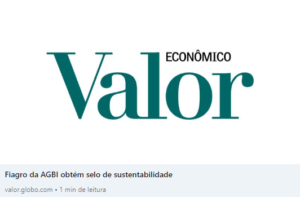In Brazil, the perspective of a global carbon market presents itself as a great opportunity. In agribusiness, it is estimated that up to 500 million tons of carbon equivalent can be generated.
The country’s high capacity for capturing carbon is due to the nature of its economy and tradition of bringing technology and innovation to the field. An example of this is the agricultural research agency Embrapa, which has been a pioneer in the development of sustainable technologies to increase productivity in the agribusiness, through techniques such as Forest Livestock Crop Integration (ILPF, the acronym for the Portuguese translation) or its variants, which can generate 99% reductions in loss of soil organic carbon relative to traditional techniques, and 25% reduction in relation to no-tillage techniques.
Although sustainable and profitable, the global carbon market demands regulation. In Brazil, for example, the only program regulatory framework for carbon credits is RenovaBio, which sets targets for the fuel sector, forcing gas stations to buy credits (CBIOs) generated by the sugar-energy sector and available to be traded on the São Paulo based B3 stoch exchange.
Still, the numbers referring to the sale of CBIOs by RenovaBio don’t lie. Each CBIO is equivalent to one ton of carbon equivalent. In 2020, it was issued 18,508,636 of CBIOs, of which 14,896,273 were traded on B3 at a price average of R$ 43.66/CBIO, according to data from the federal government.
Given this scenario, this september AGBI Real Assets announced its new partnership with the agtech startup Agrorobotica, a leader in technological innovation in agriculture incubated in Embrapa. The platform created by Agrorobotica utilizes the same technology used by the NASA Mars missions to measure soil organic carbon, monitor carbon capture and provide quantitative information related toclimate change mitigation and food safety.
Several benefits are achieved through carbon and nutrient certification services in soils, such as sustainability, agricultural productivity, and carbon monetization. Agrorobotica’s carbon capture projects are certified by international organisations, such as The Gold Standard, the world’s leading certifiers of the voluntary credit market of carbon. As a result, AGBI Real Assets’ strategies now will include a strong, quantifiable and measurable ESG element in addition to its proven and tested capital returns to investors through the transformation of degraded pastureland to cropland.
In other words, the carbon credit market in Brazil is not only sustainable and attainable, but has a promising future in the advent of a regulated international market. In addition to all the benefits to the environment, farmers and society, the partnership between AGBI Real Assets and Agrorobotica come to show investors how they can be important players in climate change efforts as well.



